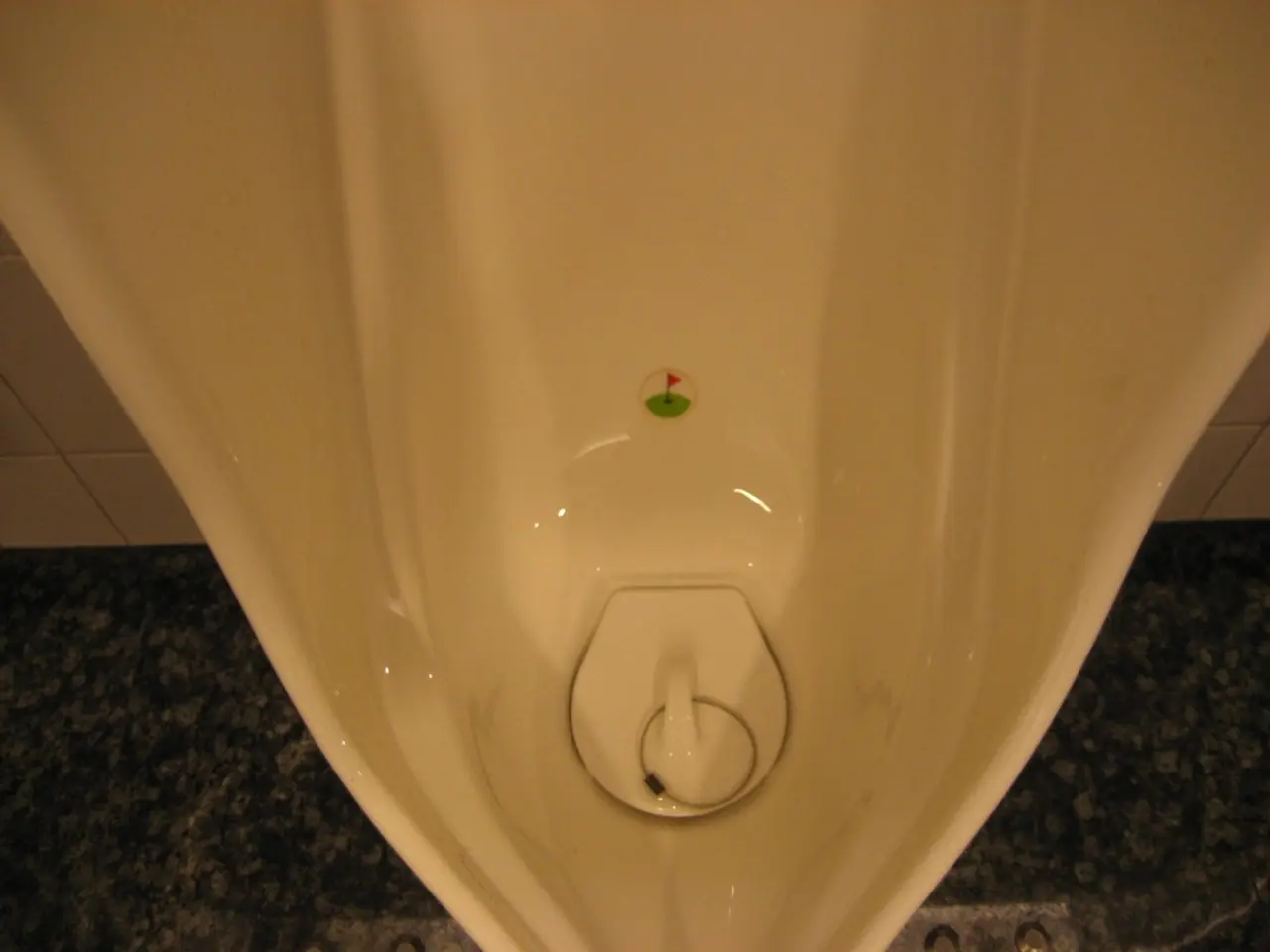Information every woman needs on urinary incontinence issues
Managing Stress Urinary Incontinence at Home: Effective Strategies for Women
Stress urinary incontinence, a common condition affecting one in four women, can be managed effectively at home with a combination of exercises, dietary modifications, and lifestyle changes.
Exercises
The key to managing stress urinary incontinence lies in strengthening the pelvic floor muscles that support the bladder. Kegel exercises are a simple and effective way to achieve this. These exercises can be done anywhere and do not require equipment. Consistency and proper technique are crucial for effectiveness [1][3][5]. Other physical therapy methods, possibly guided by a specialist, can complement Kegels by improving muscle strength and function [3][5].
Dietary Changes
Diet plays a significant role in managing bladder leakage. It's recommended to limit bladder irritants such as caffeine, alcohol, spicy foods, acidic foods (like tomatoes and citrus), and artificial sweeteners, as these can worsen incontinence symptoms [1][4]. Maintaining adequate hydration (about 64 ounces of water daily) is essential to avoid concentrated urine, which can irritate the bladder, but avoid excessive fluid intake which may increase urgency [3]. Eating a fiber-rich diet can prevent constipation, which puts pressure on the bladder and can exacerbate symptoms [1][3]. Some herbal remedies such as dandelion tea and certain traditional herbal formulas may help support bladder health, but these should be used cautiously and discussed with a healthcare provider [1][2].
Additional Home Remedies
Warm baths may relax pelvic muscles and provide symptom relief [1]. Stress reduction techniques such as deep breathing, meditation, yoga, and urge suppression methods (like distraction or positive affirmations) can reduce the impact of stress and urgency that may worsen incontinence [1][4].
Summary Table
| Remedy Type | Details & Benefits | |----------------------|--------------------------------------------------------| | Pelvic Floor Exercises (Kegels) | Strengthen bladder-supporting muscles, reduce leakage | | Dietary Changes | Limit caffeine, alcohol, spicy/acidic foods; increase fiber; hydrate adequately | | Herbal Supplements| Dandelion tea, Gosha-jinki-gan, pumpkin seed extract may support bladder function (consult doctor) | | Lifestyle | Warm baths, relaxation techniques, urge suppression methods (breathing, distraction) |
While these home remedies can help manage stress urinary incontinence, persistent or severe symptoms should prompt consultation with a healthcare professional for personalized treatment options. It's also important to discuss bladder leakage with a doctor to rule out serious conditions, especially when symptoms arise after menopause or during pregnancy.
[1] Mayo Clinic. (2021). Stress incontinence. Retrieved from https://www.mayoclinic.org/diseases-conditions/stress-incontinence/symptoms-causes/syc-20356827 [2] National Institute of Diabetes and Digestive and Kidney Diseases. (2021). Urgency urinary incontinence. Retrieved from https://www.niddk.nih.gov/health-information/urologic-diseases/urgency-urinary-incontinence [3] National Association for Continence. (2021). Stress Incontinence. Retrieved from https://www.nafc.org/patients-and-caregivers/bladder-bowel-dysfunction/stress-incontinence [4] National Institute for Health and Care Excellence. (2021). Urinary incontinence and pelvic organ prolapse in women. Retrieved from https://www.nice.org.uk/guidance/cg171 [5] American College of Obstetricians and Gynecologists. (2021). Stress urinary incontinence. Retrieved from https://www.acog.org/womens-health/faqs/stress-urinary-incontinence
Integrating natural remedies into their health-and-wellness routines, women can supplement their home management of stress urinary incontinence by exploring certain herbal supplements, such as dandelion tea and traditional herbal formulas, which may help support bladder health [1][2].In the realm of science, exploring stress reduction techniques like deep breathing, meditation, yoga, and urge suppression methods can contribute to reducing the impact of stress and urgency that may exacerbate incontinence symptoms, thereby promoting overall women's health [1][4].




